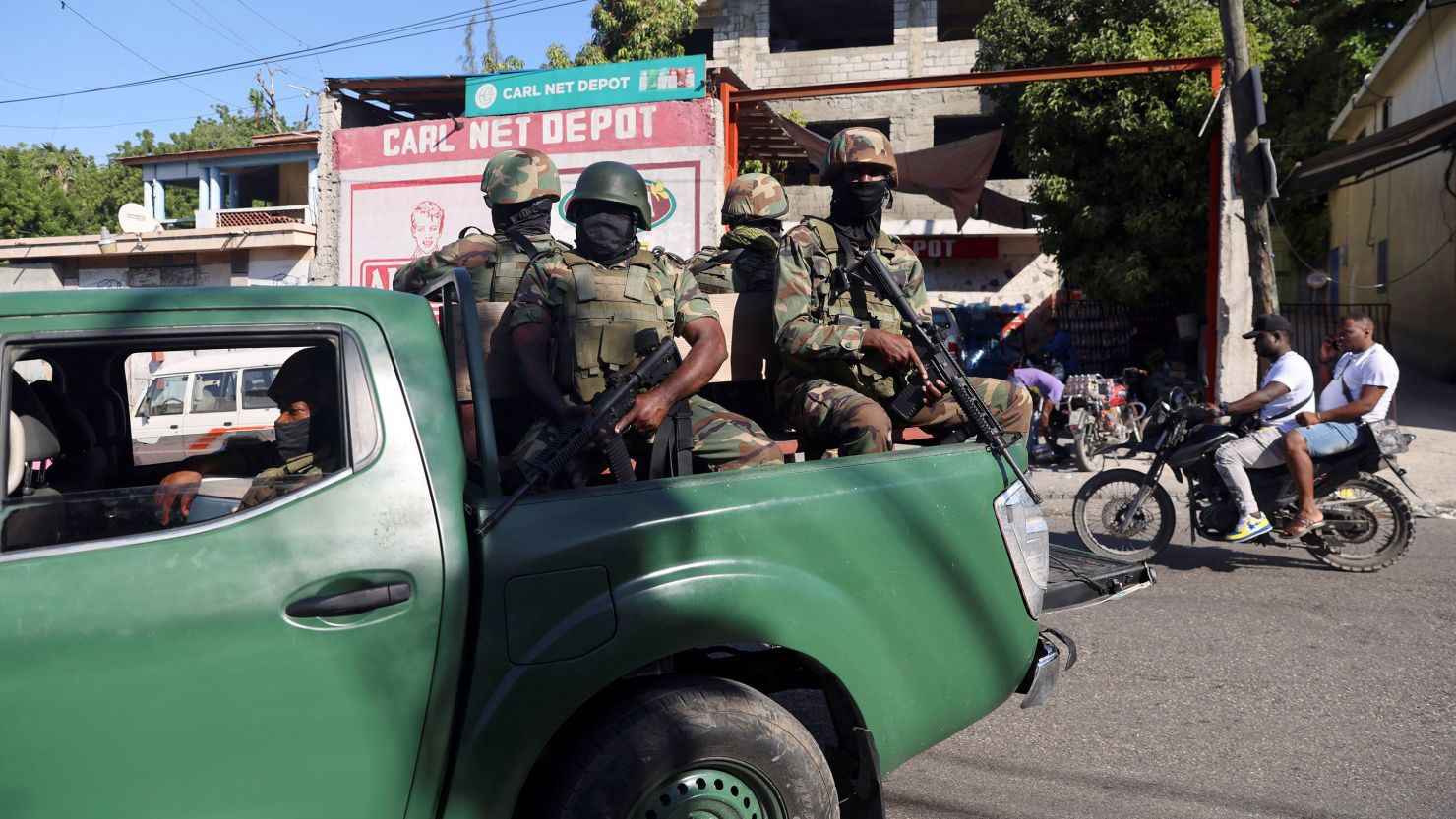On Christmas Eve in Haiti, gangs led a large-scale massacre and assault on the country’s largest public hospital, killing over 350 people. Just a few days later, another attack killed two foreign reporters and a police officer. Most recently, two dozen journalists were ambushed, sustaining serious injuries; seven of them were critically wounded. According to The New York Times, the reporters were stuck for over two hours before they were rescued, using their own clothing and nearby sanitary products to staunch bleeding. No area was safe–not even the hospital, which was left completely empty after the gang attacks forced all medical staff to flee.
Armed gangs have been a persistent issue in Haiti throughout history, often closely linked with politicians, political parties, and other elites within the country. This connection between gangs and politics dates back to the era of President Francois Duvalier and his son, Jean-Claurde Duvalier, who ruled as dictators for nearly 30 years. They used armed groups to instill fear and suppress opposition, resulting in the suffering of thousands. Today, approximately half of Haiti’s 200 gangs are stationed at Port-au-Prince, the capital of Haiti. Two major gang coalitions dominate: G9, led by Jimmy Cherizier, and Gpep, directed by Gabriel Jean-Pierre. These two groups are locked in a violent rivalry for control over the neighborhoods within the capital, making it the center of the gang war.
The massacres were a result of the Prime Minister Jovenel Moïse’s resignation in 2021 and the political instability that followed. Chaos spread around the country like a wildfire, creating a vacuum that gangs exploited to solidify their power. Despite the election of Alix Didier Fils-Aimé, he has been unable to control the gangs running rampant across his country.
The recent gang attacks started two months ago when Wharf Jeremie gang leader Monel “Mikano” Felix’s son fell ill of a mysterious illness. After being examined, the gangster was told by a voodoo priest that his son’s ailment was the cause of witchcraft practiced by older members of the community. Over the following weeks, Felix’s gang launched brutal attacks on elderly civilians, dragging them from their homes, mutilating, dismembering, and burning them to death before tossing their bodies into the sea. Some younger civilians who had tried to help were also targeted and killed; hundreds died in the process. When Felix’s son passed away, an even greater surge of violence ensued, aimed at destroying the community completely. In just one day, over 100 people were killed.
Since 2021, political factions have ruled the country, jousting for power in brutal displays of violence that target civilians and politicians alike. In just a year, more than 5,300 people were killed, and over 700,000 Haitians fled their homes in fear of their safety.
Additionally, gangs have taken over food supply checkpoints, leaving the rest of the population starving and at least half facing food insecurity.
While many experts believe that Haiti is “a failing state,” Justice Minister Patrick Pelissier disagrees. “The state has not collapsed. The state is there. The state is working,” he stated. After deploying 150 soldiers, mostly from Guatemala, to manage gang violence, he believes they will turn the tide and bring in a new wave of control and order. Recent casualties have largely been due to personnel shortage and inexperienced policemen.
Haiti is gripped by violent gangs that dominate public life through brutal means. The Haitian National Police and political leaders have struggled to regain control, leaving around 5 million Haitians suffering from hunger, a cholera outbreak, crippling inflation, and a lack of basic necessities. Grants dictate nearly every aspect of daily life, forcing citizens to traverse rival territories to access work, healthcare, or education. The criminal activities include extortion, kidnapping, drug trafficking, murder, and sexual violence. In 2022 alone, over 1,200 kidnapping and 1,349 murders were reported. That same year, G9 seized control of Haiti’s main fuel terminal and key highways, paralyzing the economy and humanitarian operations. Through violence and intimidation, they extort bribes and parents, leaving the nation in a state of constant fear and debt.
As of June 25, 2024, Kenyan forces, part of the Multinational Security Support mission, arrived in Haiti, with significant backing from the United States. This mission aims to provide much-needed relief to Haiti’s weary citizens. It will assist the Haitian National Police in ramping up anti-gang operations, strengthening their capacity to maintain public safety, and ensuring that humanitarian aid reaches those in need. The United States is the largest financial contributor to the mission, providing over $300 million and up to $60 million in equipment.
President Joe Biden expressed the urgency of the situation: “Haiti is an extraordinary country, and the people of Haiti deserve what people everywhere deserve: security, opportunity, and freedom.” His powerful words highlight the fundamental rights that all Haitians have long been denied due to instability and violence.
The ongoing gang violence, political turmoil, and humanitarian crisis demands immediate international support. With the arrival of Kenyan forces and U.S. backing, there is hope that Haiti will begin to rebuild its capacity for safety, peace, and prosperity. The international community’s commitment to helping Haiti regain security and opportunity is crucial to ensuring that the Haitian people finally achieve the security, opportunity, and freedom they deserve.









